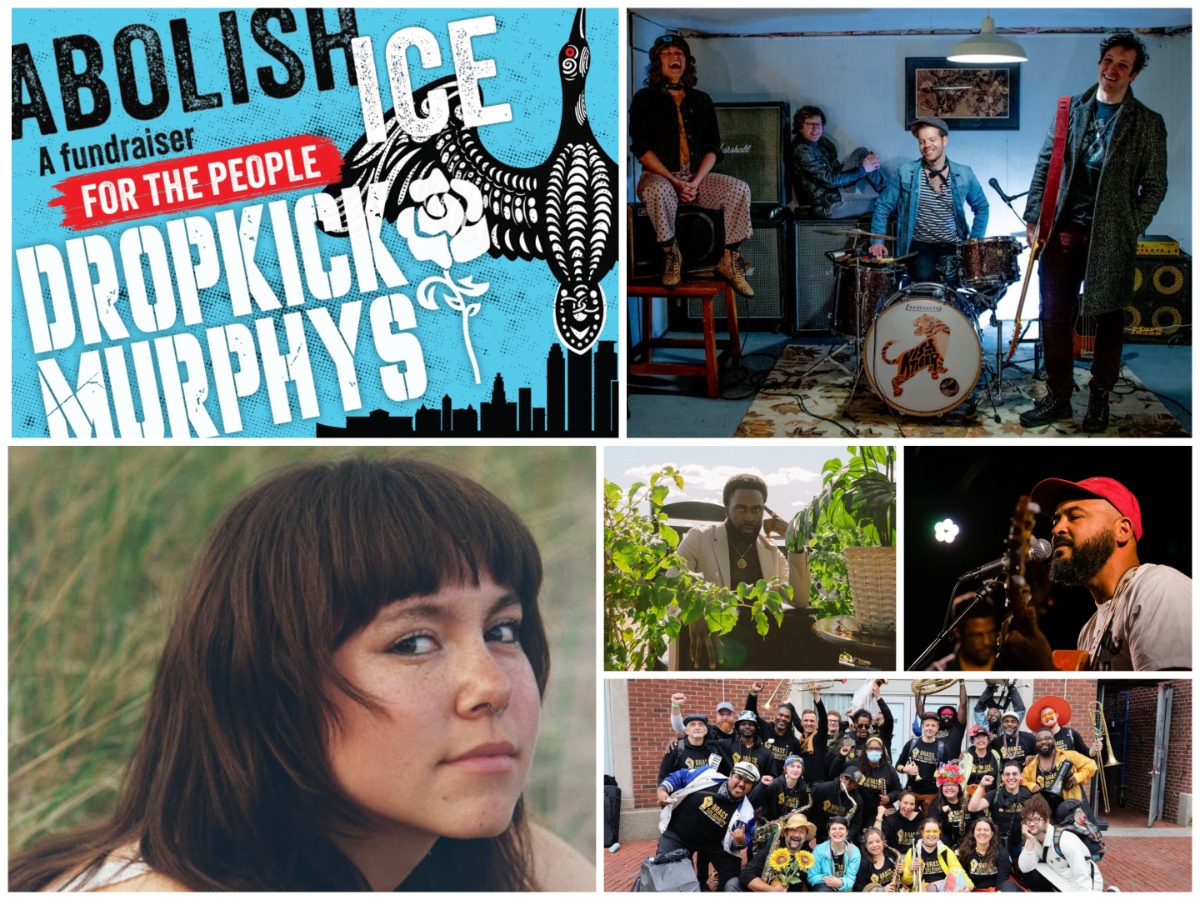Welcome back to The Flyover, your daily digest of what local media outlets and Twitter-ers are gabbing about.
An Event About Global Warming Impacted by Global Warming
It’s pretty cold out there, right? Well, guess what? It’s actually not cold enough. Most years, January temps in the Twin Cities range from 6 to 21 degrees Fahrenheit. This year? We’ve been experiencing a lot of days in the downright balmy 30s. That’s bad news for events that need thick ice to happen. Today, the Luminary Loppet, which invites folks to enjoy ice sculptures and bonfires atop Lake of the Isles, announced that it would be pushing its date back a few weeks to February 18. Meanwhile, the Art Shanties announced yesterday that they won’t be taking place directly on Bdé Umáŋ/Lake Harriet, instead setting up on the land around the (definitely not blue) bandshell.
“We started off the new year celebrating 13” of good, clear ice,” says operations director Kerri Jamison via release. “Unfortunately the recent snowstorm created a warm cozy blanket over the whole lake, acting as insulation.” The festival's pivot to land can be a teachable moment; many of this year’s shanties explore themes of global warming. And yes, this is another example of global warming. As this recent article in MPR explains, “ice cover on Minnesota lakes has declined an average of 10-14 days over the past 50 years.” Yikes. So far, the upcoming U.S. Pond Hockey Tournament and the Polar Plunges are going on as planned.
Floyd Family Establishes Fund to Aid Area
We may not yet know the ultimate fate of George Floyd Square, but the family of its namesake is doing a little something to help the businesses in the area. This week, the Ward 8 Community Benevolence Fund, to which the Floyd family donated $500,000, will begin accepting grant applications from Black- and minority-owned businesses and organizations at and near 38th and Chicago."What we hope to accomplish first and foremost is to get funds in the hands of those businesses in the Ward 8 community near where George was murdered that were impacted so heavily following George's murder," Jeff Storms, one of the Floyd family’s attorneys, told the Star Tribune. The fund's board members and City Council President Andrea Jenkins will hold a meeting at St. Thomas on at noon on January 27 to discuss grant application guidelines.
The Answer... Probably Shouldn't Surprise You
Why are streets plowed so much more quickly and thoroughly in suburban cities like Edina than they are in residential areas of Minneapolis and St. Paul? Dave Orrick asks, and then quickly answers, that question in a story for the Strib today. We'll give you a minute to think about why it might be...
If you answered "cars," you're correct! "It all gets down to parking and vehicle storage issues," Margaret Anderson Kelliher, public works director for Minneapolis, told Orrick. Folks in suburbs tend to have driveways and garages where they can park their cars; folks in cities tend not to. That means in a city like Edina, winter street parking rules put the "strict" in restrictions—which is a game-changer for their public works department when it comes to plowing. Meanwhile, in Minneapolis and St. Paul, more cars are on the street all winter long, and some folks (not our readers, never our readers) don't move their cars when a snow emergency dictates, causing the efficacy of plowing to plummet.
Leading Muslim Civil Rights Group Overrides Local Chapter
On Wednesday, the leader of the Minnesota arm of the Council on American Islamic Relations sided with student Aram Wedatalla in the Hamline University drama that has blown up to international proportions. “In reality a trigger warning is an indication that you are going to do harm,” Jaylani Hussein told reporters, alleging that art history professor Erika Lopez Prater was motivated by Islamophobia when she showed her class a 14th century painting of the Prophet Mohammed. Today, the national CAIR office issued a statement saying not so fast. It found "no evidence" that Lopez Prater was motivated by bigotry, and lamented the fact she lost her job.
That echoes a statement released earlier this week by The Muslim Public Affairs Council (MPAC), which stated: “Even if it is the case that many Muslims feel uncomfortable with such depictions, Dr. Prater was trying to emphasize a key principle of religious literacy: Religions are not monolithic in nature, but rather, internally diverse.” Amna Khalid, an associate professor at Carleton College and nationally recognized free-speech advocate, hit similar notes in her essay from last month: “Most of All, I am Offended as a Muslim.” MSNBC personality Mehdi Hasan, himself a Muslim, provided a nice roundup of folks who feel similarly:
"Islamophobia, sadly, is everywhere. But it wasn’t in that art history classroom at Hamline University."
— Mehdi Hasan (@mehdirhasan) January 11, 2023
My commentary on the firing of a professor who showed students a painting of Prophet Muhammad.
"Give that adjunct professor her job back, please."pic.twitter.com/AfeP8w48wp






